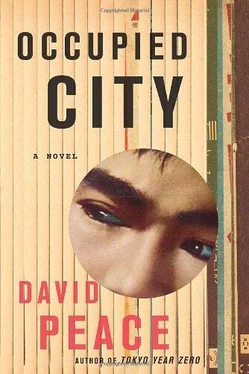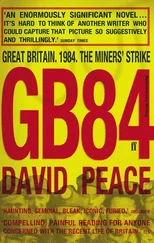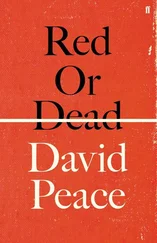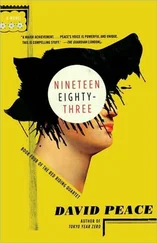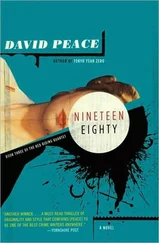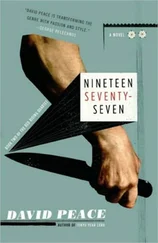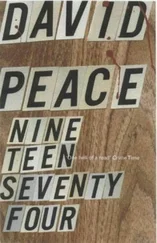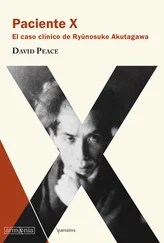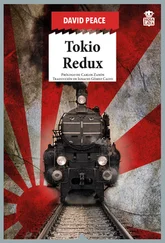‘But why?’ I ask. ‘Why there? Why now?’
‘The reason is a sad story,’ you say.
‘Then please tell me,’ I say, ‘for you are the Ferryman. To pass the time, please tell me the tale …’
‘It happened exactly one year ago,’ you begin. ‘On the twenty-sixth day of the very first month, when the Ashura passed by that place, leading a night parade of the recently murdered.
‘One among this procession was a youth, more exhausted and feeble than all the rest. Unable to walk a single step more, the youth collapsed on the far bank. But the Ashura did not hear him. The Ashura walked on and abandoned him there. They left him struggling, they left him weeping.
‘But the local people took pity on him. They cared for him as best they could. But no doubt his karma opposed their help, because the youth grew only weaker and weaker, until he was clearly dying a second time. And so the people asked him who he was.
‘I am Sawada Yoshio, he said, and I am twenty-two years old. But here I am no longer Sawada Yoshio. Now I am no longer twenty-two years old. Now I am always struggling, here I am only weeping. But it was not always so, not always so. After my father died in the war, he wept, I lived alone with my widowed mother. Then today at my place of work, I was murdered and so taken away. Now I am always struggling, here I am only weeping. That is how I have come to this place. But I worry so much for my mother. And that is the reason I can go no further, that is the reason I cannot follow the others. Now I am always struggling, here I am only weeping. So please build a mound over me, he begged, here on the bank by this river, in the hope that one day my mother might pass, that one day my mother might be near me again.
‘These words said, he called out the Holy Name six times, and then it was over. And now we have arrived on the other shore. Now it is time to disembark.’
But the people whisper, ‘See how the woman stays standing at the bow of the boat. See the single sasa branch in her hand. The single tear upon her cheek — ’
‘We are here,’ you say. ‘Please go ashore.’
‘Tell me, please, Ferryman,’ I ask. ‘Please, Ferryman, when did this happen?’
‘It happened exactly one year ago,’ you say. ‘One year ago today, on the twenty-sixth day of the first month.’
‘And the youth? How old was he then?’
‘Twenty-two years old, I believe.’
‘His family name was …?’
‘As I told you, his family name was Sawada.’
‘And his given name …?’
‘His given name was Yoshio, as I told you.’
‘And after he died,’ I say, ‘by this river, a second time, on this bank, no parent ever came looking for him …?’
‘No one ever came, I believe.’
‘No one ever came?’ I ask. ‘Not even his mother?’
‘Not even his mother.’
‘No, of course not!’ I shout. ‘For he was my boy! The boy this mad woman has been seeking! Oh, can I be dreaming? What plague, what plague is this?’
‘I am sorry, so very sorry,’ I hear you say. ‘I had thought the story I just told, this tale told merely to pass the time, was about someone I myself would never know. But all the time he was your son! What a thing, a terrible thing! But your tears and my regrets are useless now. So in their place, let me take you to his tomb.’
‘My eyes shall behold him, or so I believed until this very moment. I travelled far through this Occupied City, down its streets, along its riverbanks, among its people, only to find him gone from this world. The cruelty of it! The horror of it!
‘For his own death, he left his home and in this city became but earth, earth by the side of this river. Here he lies buried, lies buried with only the grass to cover him …’
But the people whisper, ‘Come let us turn this cold earth over one last time, to show a mother her son as he looked in life. Had he lived on, he would have known gladness, but hope was vain. He would have known gladness, but hope was vain — ’
‘Yes vain; vain as living is to me now, his mother; his mother, whom for a while a lovely figure, he glimmered like all the things in this world and then, like all the things in this world, was gone, like all the things in this world, he glimmered …
‘And then was gone …’
And now the people whisper, ‘Such sorrows lurk in the blossoms’ glory, just as the moon, through its nights of birth and death, is lost from view, behind clouds of impermanence, just so this sad world’s truth is here, so plain to see. This sad world’s truth, so plain to see — ’
‘No lament of yours can help him now,’ you say. ‘Just call the Name and pray for his happy rebirth in Paradise.’
And the people whisper, ‘See how the moon is rising now, and the river breeze sighs as the night wears on, now invocations will surely be heard. So in this spirit all present, urged on by faith, now strike their bells in rhythm — ’
‘But I his mother, overcome by sorrow, unable even to call the Name, lie here prostrate, dissolved in weeping …’
‘You must chant the Invocation, too,’ I hear you urge. ‘For it is his mother’s prayers that will bring the deceased the greatest joy. You must take the chanting-bell, too.’
‘For my own dear son’s sake,’ I say, ‘I will take up the bell!’
‘Cease lamenting,’ you say. ‘And call with ringing voice.’
‘In this bright moonlit night,’ I say, ‘I will invoke the Name.’
‘Then let us both chant together,’ you say.
And so together we say, ‘Hail, in Thy Western Realm of Bliss! Thirty-six million, million worlds ring with one cry, one Name: Amida!’
And now the people also chant, ‘Hail Amida Buddha! Hail Amida Buddha! Hail Amida Buddha! Hail Amida Buddha! Hail Amida Buddha! Hail Amida Buddha!’
In the Occupied City, on the banks of the Sumida, the wind and the waves swell our chorus …
‘Hail Amida Buddha! Hail Amida Buddha! Hail Amida Buddha! Hail Amida Buddha! Hail Amida Buddha! Hail Amida Buddha!’
‘Oh, if you are true to your name,’ I call out, ‘then Miyako birds, if you are true to your name, add your voices …’
‘Hail Amida Buddha!’ they cry. ‘Hail Amida Buddha! Hail Amida Buddha! Hail Amida Buddha! Hail Amida Buddha! Hail Amida Buddha!’
‘Stop!’ I shout. ‘Stop now! Listen! Listen now! That voice, just now calling out the Name; it was my own child’s voice! It seemed to come from within the mound, from within his tomb …’
‘I heard it too,’ you say. ‘Let everyone stop calling. Let everyone be silent. Let the mother alone now chant the Name!’
‘Oh, please,’ I beg, ‘let me hear that voice again, just one other time! Hail Amida Buddha …’
And now the people whisper, ‘See here now, atop the mound, a figure stands, stands before her — ’
‘My dear child, is it you?’
‘Dear Mother, is it you?’
And the people whisper, ‘See now how the woman goes towards the figure, how the woman reaches out towards the figure, how the woman touches its shoulder, and how the figure slips away, slips back into the mound — ’
‘My child!’
And the people whisper, ‘See again how the figure appears upon the mound, and see again how she reaches towards the figure, taking hold of its hand — ’
‘Mother!’
And the people whisper, ‘But again the figure’s shape fades and is gone, her fond longing waxing as in a mirror, as again the figure slips, slips back into the mound — ’
‘My child!’
And the people whisper, ‘Remembered form and present illusion fuse, now seen, now hidden once more, as light streaks the sky and dawn breaks the day, his shape, his shape vanished for evermore, as waking breaks into dream — ’
Читать дальше
